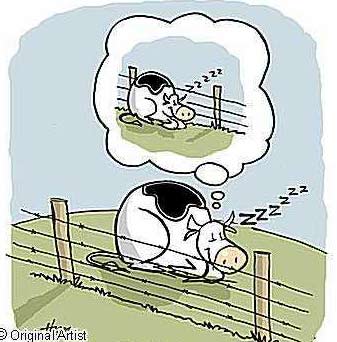 What does this headline – The grass is always greener (Economist.com, April 2, 2009,) – mean?
What does this headline – The grass is always greener (Economist.com, April 2, 2009,) – mean?
My comments: It means a better life is elsewhere than where you are. That is, other people than you are living it.
“The grass is always greener” is, in fact, shortened from the age-old adage that “the grass is always greener on the other side of the fence.” It is originally an observation of domesticated horses, cattle and sheep straining their necks to graze on untouched grass outside the fences which confine them. Or in fact this phrase must in the beginning came from observations of nature at large. I’m thinking of zebras and gazelles, you know, as my mind wanders to the African safari, where those nomadic animals move with the seasons in search of greener pastures.

For humans, this idiom is a perfect reflection on our envy of our neighbor, so to speak. You know, it’s the self-pitying sentiment we often entertain, that jobs and station in life in general are imperfect, inadequate and intolerable while other people seem to have all the fun.
Job-hoppers, for example are often described as looking for “greener grass”, or “greener pastures”.
Other varied forms of this phrase include: The grass is greener elsewhere; the grass is always greener on the other side of the lawn, on the other side of the hedge, the other side of the hill or simply on the other side.
Or, other people’s grass is always greener.
In Chinese of course we have an exact phrase to match, and that is 这山望着那山高!
Here’s an explanation of the English proverb from DeProverb.com (The Grass Is Always Greener on the Other Side of the Fence: An American Proverb of Discontent, November 1, 1995):
This proverb certainly belongs to one of the most commonly used proverbs in the English language. This should not be surprising since it expresses the only too human idea of discontent, envy, and jealousy in a metaphor which is easily understood. Interestingly enough, the proverb is also literally true as has been demonstrated by James Pomerantz in a scientific article on “‘The Grass is always Greener’: An Ecological Analysis of an Old Aphorism” (1983). This scholar proves that optical and perceptual laws alone will make the grass at a distance look greener to the human eye than the blades of grass perpendicular to the ground. The “truth” of this metaphorical proverb can, of course, also be observed often enough in the countryside when a cow or a horse is trying to get at that juicy green grass just on the other side of the fence. And since people are equally dissatisfied with their lot in life, it should not surprise anyone that a modern psychologist has spoken of “the ‘greener grass’ phenomenon” by which modern individuals continually evaluate supposedly better alternatives for themselves.
本文仅代表作者本人观点,与本网立场无关。欢迎大家讨论学术问题,尊重他人,禁止人身攻击和发布一切违反国家现行法律法规的内容。
About the author:
Zhang Xin is Trainer at chinadaily.com.cn. He has been with China Daily since 1988, when he graduated from Beijing Foreign Studies University. Write him at: zhangxin@chinadaily.com.cn, or raise a question for potential use in a future column.
相关阅读:
